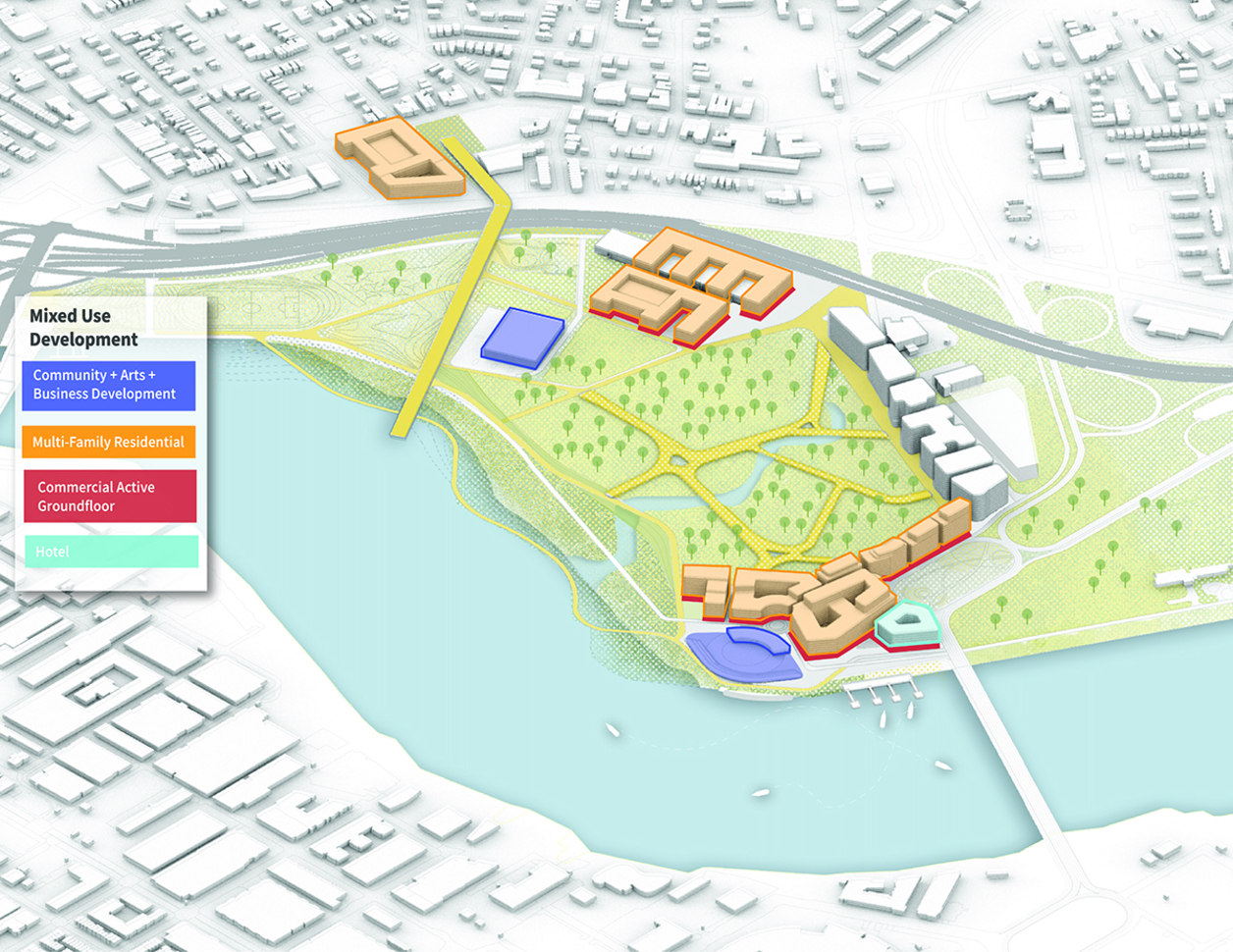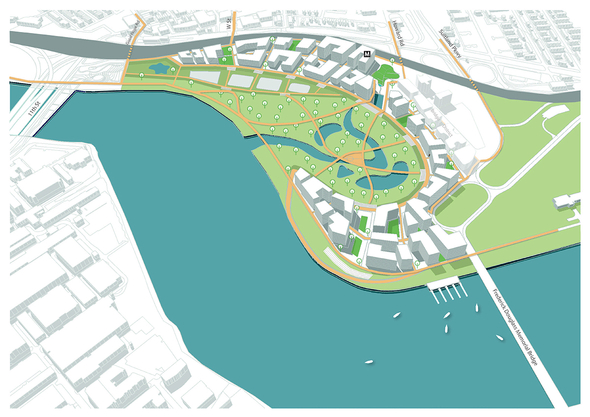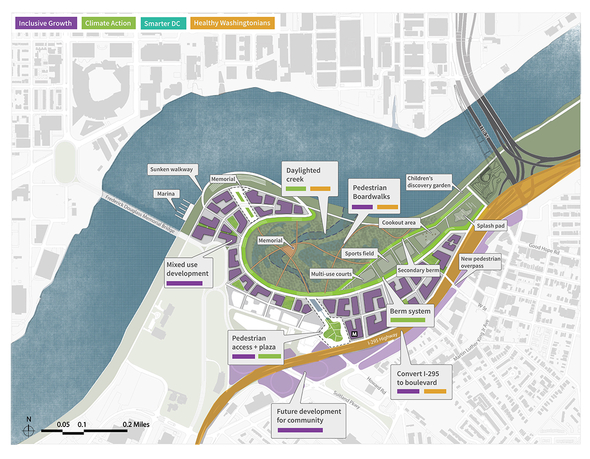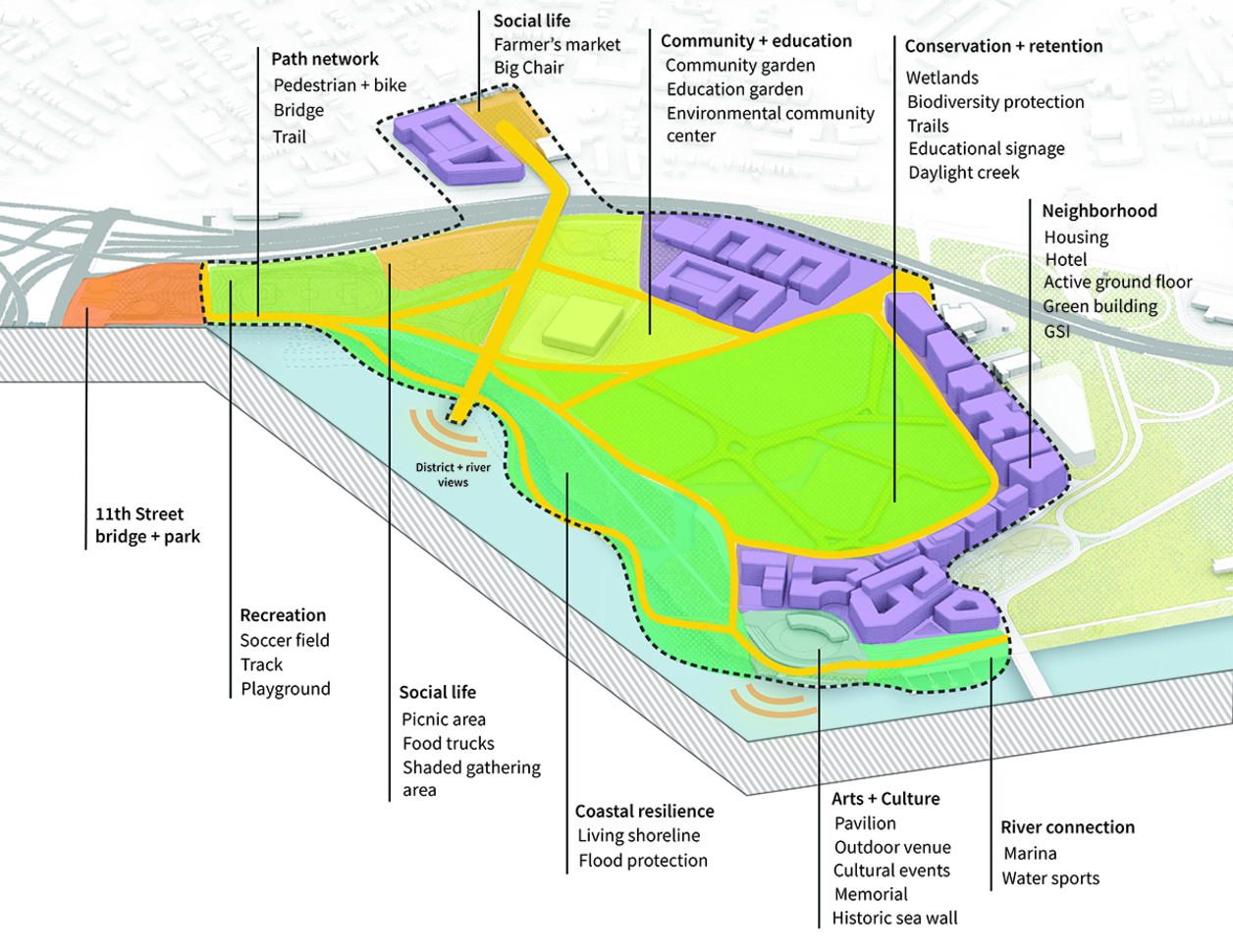Poplar Point: A Resilient District
Urban resilience is the capacity of individuals, communities, institutions, businesses, and systems within a city to survive, adapt, and thrive no matter what kinds of chronic stresses and acute shocks they experience. For this Fall 2021 University of Pennsylvania studio course, thirteen Master of City Planning students, with the guidance of adjunct faculty Nando Micale and Danielle Lake, sought to rethink systems that create resiliency as they envisioned a future for Poplar Point in Washington, DC.
Given Poplar Point is situated in a low-lying area along the river, the site is particularly vulnerable to flooding and its damaging impacts. The surrounding Ward 8 neighborhoods are also vulnerable to the negative externalities that may accompany development. Anacostia, a historically Black neighborhood in a historically Black city, is increasingly experiencing the threats of gentrification and displacement. As such, Poplar Point, which is seen as the last frontier of waterfront development in the District, represents a once-in-a-lifetime opportunity for DC to develop a large-scale site in a way that prioritizes both resilience and equity.





